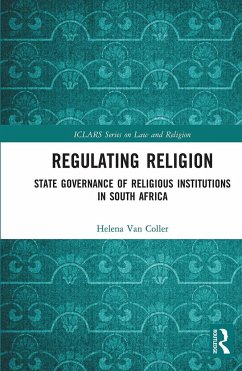
Regulating the International Movement of Women
From Protection to Control
Herausgeber: Fitzgerald, Sharron

PAYBACK Punkte
26 °P sammeln!
The question of how to conceptualize the relationships between governments and the everyday lives of women has long been the focus of attention among feminists. Feminist scholarship critiques women's lives, experiences and gender inequality in a variety of contexts. In this age of increased internationalism, we are witness to government actor's attempts to use women's alleged `vulnerability' to justify its humanitarian interventions. Regulating the International Movement of Women interrogates western government's uses of discourses of human vulnerability as a tool to regulate non-western women...
The question of how to conceptualize the relationships between governments and the everyday lives of women has long been the focus of attention among feminists. Feminist scholarship critiques women's lives, experiences and gender inequality in a variety of contexts. In this age of increased internationalism, we are witness to government actor's attempts to use women's alleged `vulnerability' to justify its humanitarian interventions. Regulating the International Movement of Women interrogates western government's uses of discourses of human vulnerability as a tool to regulate non-western women's migration. In this collection of provocatively argued essays, the contributors wish to reclaim the concept of racialised and gendered vulnerability, from its under theorized, and thus, ambiguous location in feminist's theory, in a variety of methodological and geographical contexts. The book addresses the human geographer, the socio-legal and critical scholar, the sociologist, the cultural, postcolonial and political theorists and practitioners. This unique text will be of value to academics, postgraduate and research students of any of the above disciplines, as well as practitioners interested in theoretical and empirical discussions of the state, normativity and the regulation of women's cross-border mobility.














